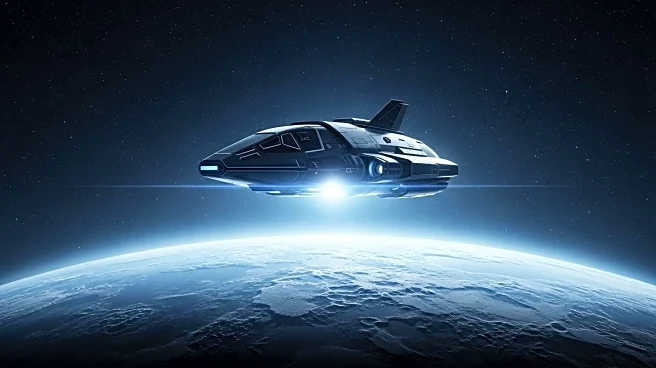What's Happening?
NASA is considering a mission to Saturn's moon Enceladus, which may harbor extraterrestrial life. The Enceladus Orbilander mission, proposed for launch in 2038, aims to explore the moon's subsurface ocean, which Cassini data suggests contains organic molecules. The mission would involve an orbiter and a lander, powered by radioisotope thermoelectric generators, similar to those used in previous deep space probes. The U.S. has capabilities, such as SpaceX's Starship, to support this mission, which could significantly reduce travel time to Saturn using a direct fusion drive. This mission is seen as a potential flagship endeavor for NASA, promising substantial scientific and technological returns.
Why It's Important?
The exploration of Enceladus could redefine our understanding of life beyond Earth. Discovering life on Enceladus would have profound implications for astrobiology and the search for extraterrestrial life. The mission could also advance space technology, particularly in propulsion systems, and strengthen the U.S.'s position in space exploration. The potential discovery of life on Enceladus could shift focus from Mars, offering a new frontier for scientific inquiry. Additionally, the mission could foster international collaboration, as other space agencies have shown interest in exploring Saturn's moons.
What's Next?
If the mission proceeds, NASA will need to finalize the design and technology for the Enceladus Orbilander. Collaboration with commercial partners like SpaceX could be crucial for the mission's success. The development of a direct fusion drive is a key technological hurdle that must be addressed. As the mission progresses, it will likely attract interest from the scientific community and potentially influence future space exploration policies. The timeline for the mission suggests a launch in 2038, with significant preparatory work required in the coming years.
Beyond the Headlines
Exploring Enceladus raises ethical questions about contaminating extraterrestrial environments. The mission must ensure that Earth's microbes do not interfere with potential life forms on Enceladus. This concern highlights the need for stringent planetary protection protocols. The mission also underscores the growing role of commercial entities in space exploration, potentially reshaping the dynamics between government agencies and private companies.









